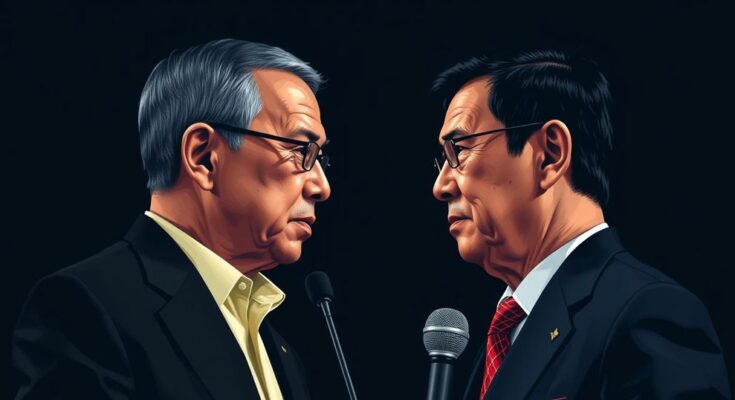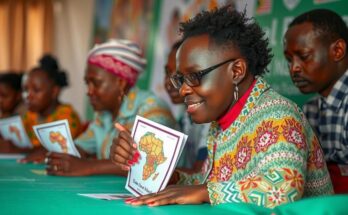This week’s Global Hot List highlights pressing political developments including VP Kamala Harris’s troubling poll numbers in the U.S., India’s rural-urban voting divide, the rise of an extremist faction in Lithuania, and significant political events in Mozambique, Ireland, Georgia, Kenya, the Philippines, and Brazil.
The latest edition of the Global Hot List, curated by elections expert Brad Glasser, reviews significant political developments worldwide, bringing attention to various regions. Key topics analyzed this week include the electoral landscape in the United States amid concerns regarding Vice President Kamala Harris’s polling numbers, the emerging rural-urban voting divide in India, and the rise of an extremist political party in Lithuania. 1. United States – With mounting concerns regarding Vice President Harris’s favorability, Democratic advisors are urging voters to disregard fluctuating poll results. David Plouffe articulated in New York Magazine that the state of the race remains largely unchanged and emphasized the importance of ground-level campaigning heading into the election. 2. India – The recent Haryana state elections indicated a rural-urban voting divide, with the BJP performing well in urban centers while the Congress party gained traction in rural locales. This pattern aligns with previous trends observed in India’s larger electoral framework, although newer analyses suggest some shifts in voting behaviors in rapidly urbanizing regions. 3. Lithuania – A newly formed party, led by controversial figure Remigijus Zemaitaitis, achieved significant representation in national elections. The party’s rise is attributed to rhetoric promoting divisive narratives regarding historical events, which has sparked concern about the normalization of extremist politics in the EU. 4. Mozambique – In a remarkable political development, independent presidential candidate Venancio Mondlane declared himself the rightful victor of recent elections, warning of a potential national strike should the ruling party declare otherwise. His campaign resonated with the youth, reflecting widespread discontent over corruption and unemployment. 5. Ireland – Speculation surrounds the possibility of a snap election in 2024, following shifts in polling that have shown the Fine Gael party gaining ground against Sinn Fein. Recent internal crises within Sinn Fein have raised questions about their political stability. 6. Georgia – Concerns mount regarding the potential manipulations in forthcoming elections by Georgia’s ruling party, which favors pro-Russian policies. Observers have remarked on the stark division between pro-European and pro-Russian sentiments, further complicating the political landscape. 7. Kenya – Vice President Rigathi Gachagua has been impeached amid allegations of corruption and incitement of ethnic tensions. The Kenya Senate is set to deliberate on the charges and must achieve a two-thirds majority for Gachagua’s removal. 8. Philippines – Vice President Sara Duterte has publicly stated that she and President Ferdinand Marcos Jr. were never friends, reflecting a deterioration of their political alliance. This revelation highlights the ongoing tensions intertwined with their family legacies and political rivalries. 9. Brazil – Brazilian police officers are increasingly seeking political influence through their social media followings. Critics emphasize the troubling implications of this trend for human rights, particularly in a country grappling with issues of police violence.
The Global Hot List serves as a periodic roundup of political events that are shaping national and international landscapes. The document collates significant happenings spanning diverse geopolitical contexts while offering brief analyses of prevailing electoral dynamics. This week’s edition illustrates how complexities in voter behavior, party politics, and individual political figures are impacting the fabric of governance in various countries, from established democracies to emerging political landscapes.
In summary, the Global Hot List outlines critical electoral trends and political upheavals taking place around the globe, spotlighting the interplay between public sentiment, governance, and political strategy. The dynamics observed in regions such as the United States, India, and Lithuania, among others, underscore the evolving nature of international politics, characterized by increasing polarization, emergent political parties, and shifting electoral allegiances.
Original Source: www.semafor.com




